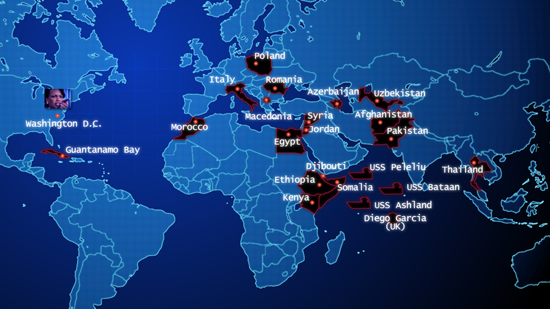By Eric C. Sigmund
Managing Editor of News, Impunity Watch
THE HAGUE, Netherlands – In a historic moment for the International Criminal Court, former Nuremberg prosecutor Benjamin Ferencz, joined ICC prosecutors last month to complete the Court’s first ever trial – concluding the closing statements in the case against Thomas Lubanga Dyilo. Mr. Ferencz, a strong advocate of the ICC, served as the Chief Prosecutor for the United States at the International Military Tribunal in Nuremberg, Germany, in the “Einsatzgruppen Case.” Mr. Ferencz’s efforts in what has been recognized as the “biggest murder trial in history,” led to the conviction of twenty-two Nazi war criminals charged with murdering over one million people. Mr. Ferencz’s remarks to the Court highlighted the continued importance of international criminal law since the Nuremberg tribunal and the role of humanity in promoting the rule of law.

Thomas Lubanga, the former rebel leader of the Patriotic Forces for the Liberation of Congo (FPLC), has been charged with systematically recruiting children under the age of 15 as soldiers. This practice, which has been prevalent in conflicts throughout Africa, has been deemed a violation of international law. While some have called the legitimacy of the trial into question, Deputy Prosecutor Fatou Bensouda contends that Lubanga’s guilt reaches “beyond any possible doubt.” Deputy Prosecutor Bensouda further notes that “His conviction…will mean justice for thousands of victims and will send a clear message: There will be no impunity for those who recruit children.”
Reflecting on the importance of the Lubanga trial, Mr. Ferencz stressed that “this is a historic moment in the evolution of international criminal law.” Noting the magnitude of Lubanga’s crimes, Ferencz stated “The Prosecutor’s Office spoke at length, meticulously detailing grim facts establishing the responsibility of the accused for the crimes alleged. The evidence showed that waves of children, recruited under Mr. Lubanga’s command, moved through as many as 20 training camps, some holding between eight and sixteen hundred children under age 15… Words and figures cannot adequately portray the physical and psychological harm inflicted on vulnerable children who were brutalized and who lived in constant fear. The loss and grief to their inconsolable families is immeasurable. Their childhood stolen, deprived of education and all human rights, the suffering of the young victims and their families left permanent scar.” Closing the prosecution’s case against Lubanga, Ferencz encouraged the Court to “Let the voice and the verdict of [the] court now speak for the awakened conscience of the world.”
Mr. Ferencz’s comments mark a critical period in the development of international law. With the world awaiting the verdict against Mr. Lubanga, the former Nuremberg prosecutor reminds us all that international criminal law continues to “protect the fundamental rights of people everywhere.”
The full transcript of Mr. Ferencz remarks can be seen here.
For more information, please see:
Radio Netherlands Worldwide – Lubanga: Judges Deliberate First ICC Judgment – 29 Aug. 2011
Agence France Presse – Lubanga Guilty “Beyond Any Possible Doubt”: ICC Prosecutor – 25 Aug. 2011
BenFerencz.org – Speech of Mr. Benjamin Ferencz at Closing of Lubanga Case – August 2011
BenFerencz.org – Biography – 2011


